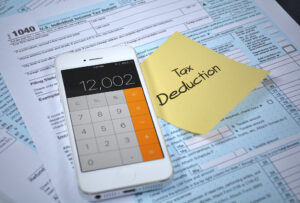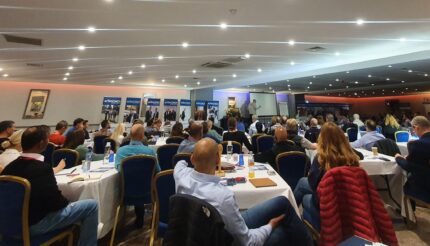Can I get a tax deduction on business coaching?
Are you a business owner who’s considering hiring a coach to help you improve your business? If so, you may be wondering “can I get a tax deduction on business coaching expenses?” Let’s explore the answers to some common questions about this topic.
What expense category would business coaching come under?
First things first, what expense category would business coaching fall under? Business coaching would generally be classified as a professional development expense. It might also come under staff training or even consultancy. Other examples of professional development expenses might include attending conferences or taking courses to improve your skills.
Do I need to keep my receipts or invoices for coaching to class it as an expense and get a tax deduction?
The answer is yes. If you want to claim a tax deduction for your coaching expenses, you’ll need to keep careful records of your payments.
This means holding onto receipts or invoices that show the date, the amount paid, and the name of the coaching provider. Most good coaches will also be VAT registered, so make sure that the invoice from your coach has a VAT number so you can reduce your VAT bill.
How much does business coaching usually cost?
Well, the truth is, there’s no one-size-fits-all answer to this question. Business coaching costs can vary widely depending on a number of factors, including the coach’s level of experience, the type of coaching you need, and the duration of the coaching sessions.
It’s down to you to work out whether it’s worth investing in a business coach. If you want more info on whether having a coach is worth it for you just click here.
That being said, let’s dive into some of the average costs you can expect to pay for business coaching in the UK. First, there’s the hourly rate, which on a 121 coaching programme can range from around £200 to £1500 per hour. This may sound like a lot, but keep in mind that business coaching is an investment in your business growth and the return on that investment can be significant.
Another factor that can impact the cost of business coaching is the format of the coaching sessions. One-on-one coaching sessions are generally more expensive than group coaching sessions.
The outliers
Of course, there are always outliers when it comes to business coaching costs. Some coaches may charge significantly more than the average hourly rate, while others may charge less. As with any service, it’s important to do your research and choose a coach that’s right for you and your budget. If you want to understand why some business coaches are so expensive just click here.
Now, I know what you’re thinking. “All of this sounds great, but I still don’t know if I can afford business coaching.” It’s true that coaching can be a significant investment, but keep in mind that many coaches offer a free session or discovery call. This can be a great opportunity to get to know the coach, ask questions, and determine if coaching is right for you.
Finally, it’s worth mentioning that there are also many free or low-cost resources available for business owners who are looking for guidance and support. From online courses to business mentorship programs, there are plenty of options out there that won’t break the bank.
In conclusion, the cost of business coaching in the UK can vary widely depending on a number of factors. While it’s true that coaching can be a significant investment, the return on that investment can be significant as well. Whether you’re looking for support in a specific area or more general guidance and accountability, there are coaches out there who can help. So, don’t be afraid to do your research, ask questions, and invest in yourself and your business. Who knows, maybe one day you’ll be the one charging £1500 per hour. (Just kidding, let’s stick to reasonable prices, shall we?)
Can I deduct the full cost of business coaching or only a portion of it?
Well, the answer is…it depends. HMRC generally allow you to deduct coaching expenses that are considered “ordinary and necessary” for your business.
This means that you can deduct the full cost of coaching that is directly related to your business activities.
Business coaching almost always falls under that category. But there are exceptions.
If the coaching is only partially related to your business, you may only be able to deduct a portion of the expense.
For example, if you had a business coach that spent 50% of the time coaching you to decorate your house (random example I know, but wanted to make the point clear) then you could only deduct 50% of the expenses. Painting your house has nothing to do with your business so you can’t deduct that half.
Are there any limitations or restrictions on deducting coaching expenses?
Yes, there are.
HMRC has guidelines on what types of coaching expenses are considered deductible. For example, you cannot deduct expenses for coaching that is only for personal purposes, such as coaching for a hobby or a non-work-related skill (such as sports or fitness coaching, or painting your house, didn’t think that would come up twice did you?) Additionally, you cannot deduct expenses for coaching that is deemed “excessive or lavish.”
Basically, don’t take the biscuit.
How do I report coaching expenses on my tax return?
In the UK, how you report coaching expenses will depend on whether you’re self-employed or a limited company.
Here are some general guidelines:
If you’re self-employed, you’ll need to report your coaching expenses on your self-assessment tax return. You can claim coaching expenses as a business expense. That will reduce your taxable profit and the amount of tax you owe. You’ll need to keep detailed records of your coaching expenses, including invoices and receipts, in case you’re audited by HM Revenue & Customs (HMRC).
If you’re a limited company, you’ll report your coaching expenses on your company tax return (form CT600). Again, you can claim coaching expenses as a business expense, which will reduce your taxable profit and the amount of corporation tax you owe. You’ll also need to keep detailed records of your coaching expenses to support your claim.
As with any tax-related matter, it’s always a good idea to consult with an accountant or tax professional. That way you can ensure you’re reporting your coaching expenses correctly and taking advantage of all the deductions you’re entitled to.
Can I deduct coaching expenses if I am self-employed or a freelancer?
But what if you’re self-employed or a freelancer? Can you still deduct coaching expenses? Absolutely. As long as the coaching is directly related to your business activities, you can claim the deduction.
Are there any special rules or requirements for deducting coaching expenses for a home-based business?
If you’re running a home-based business, you might be wondering if there are any special rules or requirements for deducting coaching expenses. The good news is that the rules for deducting coaching expenses are the same whether you have a home-based business or a brick-and-mortar store. As long as the coaching expenses are incurred “wholly and exclusively” for the purpose of your business, you can deduct them on your tax return.
Can I deduct coaching expenses if I am not a business owner but am taking coaching to improve my skills for my current job?
Can you get a tax deduction on business coaching expenses if you are employed? If you are employed in the UK, you may be able to deduct business coaching expenses from your tax return. There’s a but, and it’s a big but because it depends on your specific circumstances.
Generally, if you are paying for coaching to improve your skills for your current job, you may be able to claim a deduction for the expense.
However, if the coaching is more geared towards something personally that helps you outside of work, it may not be deductible.
It’s important to keep in mind that there are certain limitations and restrictions on deducting coaching expenses and it’s made difficult if you’re employed. With that being said it’s always best to seek professional advice or consult HM Revenue & Customs (HMRC) guidelines before making any claims.
Additionally, if your boss is paying for the coaching, it would not be deductible for you as an individual.
Overall, whether you can deduct business coaching expenses on your tax return will depend on your individual circumstances and the nature of the coaching.
How can I ensure that I am following all the rules and regulations when it comes to deducting coaching expenses from my taxes?
Now, you might be thinking, “I want to make sure I’m following all the rules and regulations when it comes to deducting coaching expenses on my taxes. How can I do that?”
Well, the best way to ensure you’re following the rules is to keep detailed records of all your coaching expenses. It’s worth keeping and including receipts and invoices. This will help you support your claim if you’re ever audited by the tax authorities. It’s also a good idea to consult with a tax professional to make sure you’re taking advantage of all the deductions you’re entitled to.
Summary
In summary, if you’re a business owner who’s considering hiring a coach, it’s important to understand the tax implications of that decision. Business coaching expenses generally fall under the category of professional development expenses. You’ll need to keep careful records of your payments if you want to claim a tax deduction. Just make sure that the coaching is directly related to your business, and you should be good to go. We hope this article answered any doubts that you had about whether or not you can get a tax deduction on business coaching.
Remember, when it comes to taxes and business expenses, it’s always a good idea to consult with a qualified tax professional. We’d always recommend speaking to a good accountant. They can help you navigate the ins and outs of the tax code and make sure you’re taking advantage of every deduction you’re entitled to.
If you want to find out more about our prices and programmes just click here.

Can I get a tax deduction on business coaching expenses?




